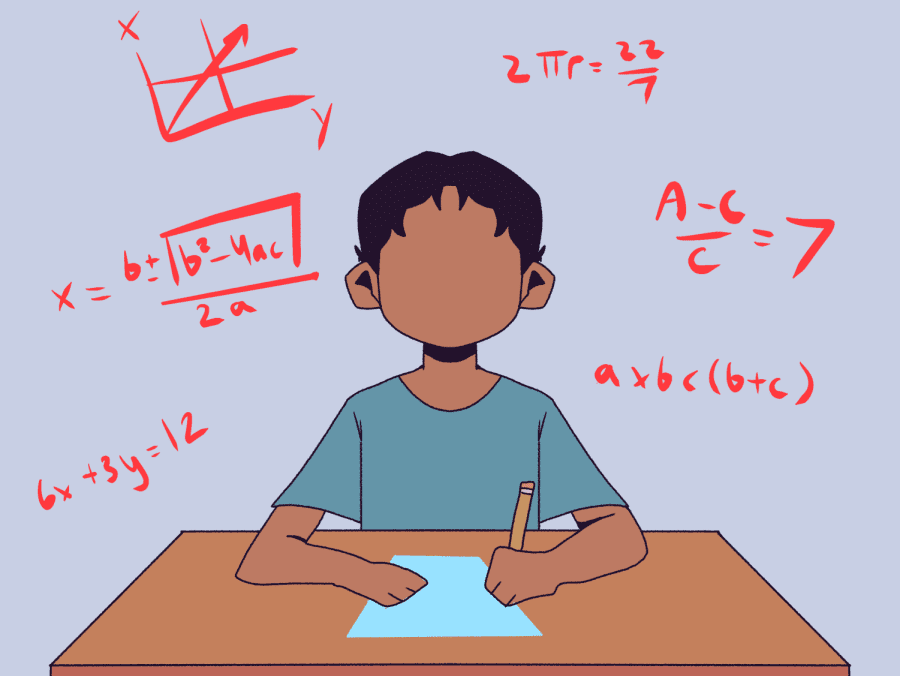Opinion | ‘Gifted’ programs damage academic success
Sep 15, 2022
Like many Gen Z, I grew up being considered by my parents and teachers as one of the “gifted kids.” My grades were good, I participated in class more often than others and I was close with all of my teachers. So naturally, my first grade teacher decided to place me in the gifted kids’ group, which, little did I know, would change the course of my academic journey for the worse.
I felt great. It was only reasonable to feel a sense of pride and a great boost to my ego knowing that I was deemed smarter than the majority of my peers.
The group I was placed in was the accelerated math group, where we basically did higher-level addition problems. The work started out fairly manageable, and I was able to solve most of the problems on my own. However, as time went on, the problems became increasingly difficult; I soon realized my teachers were well over their heads in placing me in this group.
But would I say anything? Of course not. Doing so would absolve me of the accolade that became so imperative to my academic identity, as well as cause me to question my ability to succeed if quitting such a seemingly distinguished group of students was my only choice.
The prestige of being in this group became more apparent when the teacher overheard me explaining to another student not in the group why I didn’t do the same worksheets as the rest of the class. I was met with a stern look as she strictly cautioned me by saying, “We don’t talk about that.” At that point, I felt more obligated to stay, as I was reminded of the exclusivity I was associated with.
Get The Daily Illini in your inbox!
For this reason, I use the term “gifted kid” or “accelerated” lightly when describing myself growing up, as it isn’t meant to narcissistically commend my academic ability, but rather to show that I was given this title without meeting all of the criteria.
But would checking the boxes that deem one gifted have mattered? I suppose it could have, in the sense that I would at least benefit from the work given by being in the group. But more importantly, it meant I wouldn’t be taught the skills necessary to succeed in my future.
Years went on, and although new teachers didn’t place me in any new “accelerated” groups, I was constantly reminded that I was gifted either by them or my parents.
This was supposed to be a good thing, and at the time, the high praise would definitely allow me to want to succeed in school to an extent, but the repercussions of having that identity would soon bear consequences.
When high school came around, the negative impacts of being a gifted student began to set into motion.
To start, I was a procrastinator. Did being a gifted student prepare me for sticking to an organized schedule of getting homework done outside of class? No, it made me believe that I could just get work done whenever I wanted to because I would be smart enough to do it efficiently.
I was also seldom motivated and had very little work ethic. Did being a gifted student allow me to have one? Definitely not. I was already smart enough to know the material, so why would I need to go out of my way to try and learn new concepts and get work done?
I was at a severe disadvantage from an ideology that aimed to help me rise above others.
Come senior year, I was heavily struggling to maintain decent grades. I wasn’t motivated to get any work done, and I had heavily procrastinated on nearly every assignment. Thankfully, my Advanced Placement research teacher noticed and saw that I wasn’t motivated to pursue the research topic I myself chose and was supposed to be interested in and that I was too proud to ask for help.
Eventually, with her help, I was able to pick up the pieces and was awed by my ability to get the final project done and impress the panel of listeners. And in a one-on-one meeting, we reflected on my shortcomings and the progress I had made in defeating them. She allowed me to understand that asking for help was OK, which was more beneficial to my academic success than being accelerated ever was.
I know many students, especially at the University, still struggle with the expectations and side effects that being considered gifted has. Let me be the one to tell you that it’s OK if you feel like you are in over your head. It’s OK to recognize that you may not have the background of what a successful student can now look like. And it’s definitely OK to have imposter syndrome. It’s super corny, but you really aren’t alone.
Ask for help, as I found the best teachers to be the ones who allow you to create your own academic identity, not place theirs on you.
Matthew is a sophomore in LAS.






